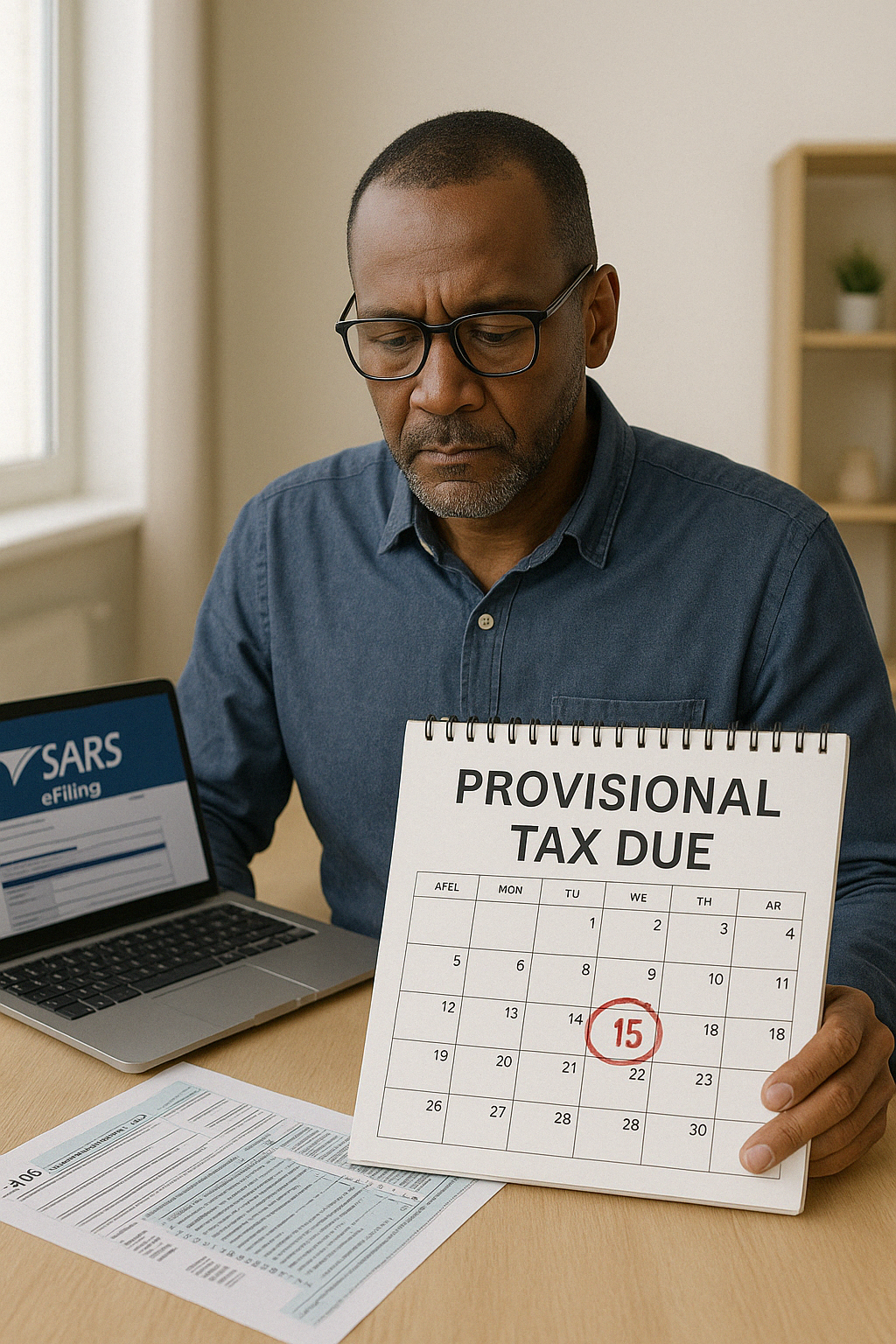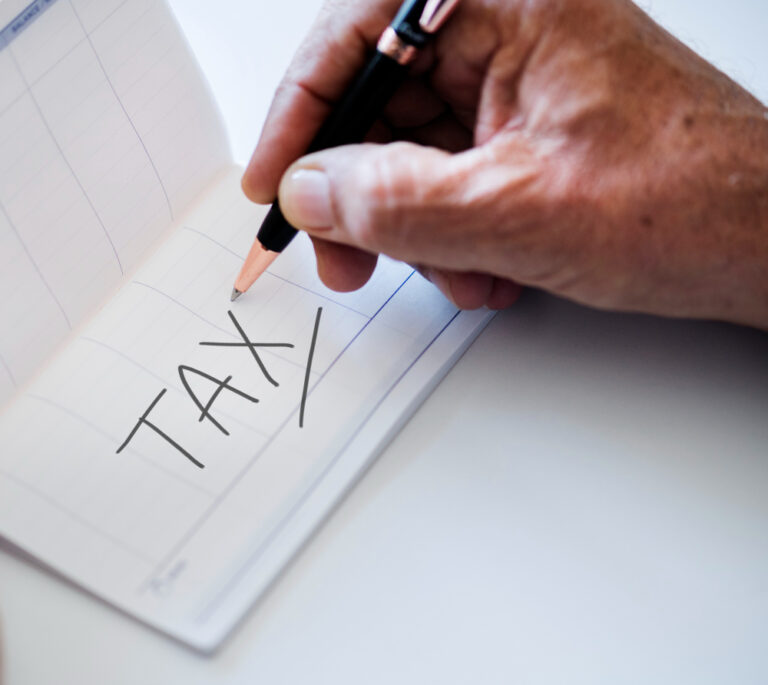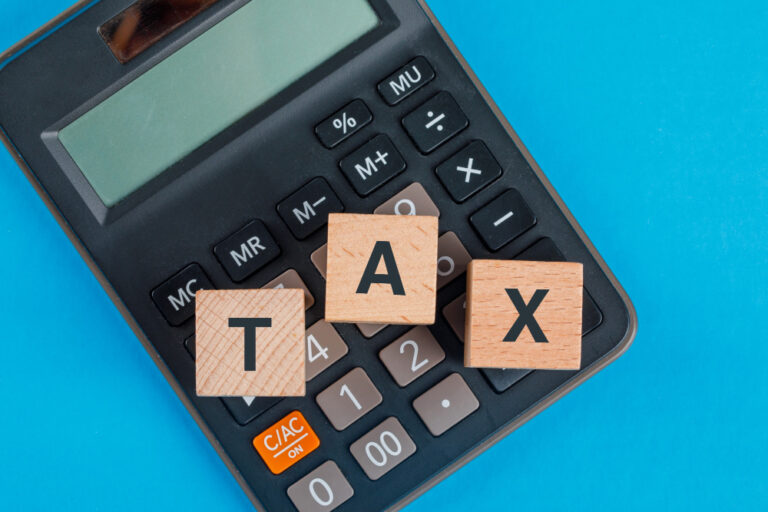Do You Need to File Provisional Tax? Here’s How to Know
Filing provisional tax might sound intimidating at first, but if you earn income beyond a standard salary in South Africa, knowing when and how to file provisional tax is essential.
Whether you’re self-employed, earning rental income, receiving dividends, or running a side hustle, you could already be considered a provisional taxpayer without realizing it. Missing the obligation to file provisional tax can result in hefty penalties and unnecessary financial stress.
In this guide, we break down exactly what provisional tax is, who must file it, when it’s due, and how to calculate it — with simple examples to make the process clear and easy to understand.
What Is Provisional Tax?
Provisional tax is not an additional tax — it’s a method of paying your expected income tax in advance. Instead of paying a large lump sum at the end of the year, you spread your payments across the year based on estimated earnings.
You are likely required to file provisional tax if you earn income that does not have PAYE (Pay As You Earn) deducted by an employer. This includes:
- Freelancers and consultants
- Sole proprietors and small business owners
- Property landlords (earning rental income)
- Company directors without salary
- Investors earning interest, dividends, or capital gains
- Individuals earning foreign income

Who Needs to File Provisional Tax?
According to SARS, you must file provisional tax if:
- You earn income other than remuneration (salary), and
- Your total taxable income is above the tax threshold (for 2024/2025: R95,750 for individuals under 65).
You are NOT a provisional taxpayer if:
- You earn a salary below R500,000 from one employer with no other income.
- Your only extra income is exempt (like small amounts of interest or dividends below R23,800 if under 65).
✅ Real-Life Example:
Sarah earns R480,000 a year from her full-time job and R6,000/month in rental income (R72,000/year). Her total taxable income exceeds the threshold, so she must register and file provisional tax.
When Must You File Provisional Tax?
Filing provisional tax happens in two or sometimes three installments:
- First Payment: End of August (based on mid-year estimate)
- Second Payment: End of February (based on final estimate)
- Third (Optional) Payment: End of September (6 months after year-end) if there was an underpayment
Your first two payments are estimates based on your projected annual taxable income. If you underpay significantly, SARS can charge penalties unless you make a top-up third payment.
How Is Provisional Tax Calculated?
You must estimate your total taxable income for the year and calculate the tax owed using the SARS tax tables.
Steps to Calculate Provisional Tax:
- Estimate your total taxable income for the full year.
- Apply SARS tax rates to calculate your tax liability.
- Subtract any PAYE already paid (if applicable).
- Divide the amount for your first and second provisional payments.
✅ Example:
Thabo, a freelance web designer, earns around R30,000 per month (R360,000 per year).
Using 2024/2025 tax tables, his estimated tax liability is about R46,650.
- First Payment Due (August): R23,325
- Second Payment Due (February): R23,325 (adjusted if income changes)
Penalties for Late or Underpayment
Provisional tax is a self-assessment system. You’re responsible for:
- Calculating your correct estimate
- Filing the IRP6 returns on time
- Paying the correct amounts
If you miss the deadline to file provisional tax or underpay:
- SARS imposes a 10% penalty for late filing or payment.
- Interest is charged on outstanding amounts.
- An underestimation penalty applies if your second provisional payment is less than 90% of your actual taxable income.
How to File Provisional Tax
Filing provisional tax through SARS eFiling is straightforward:
- Log into your SARS eFiling account.
- Navigate to Returns Issued → Provisional Tax.
- Complete your IRP6 return with your income estimate.
- Submit the return and pay via eFiling.
Important: Always update your estimate if your actual income changes significantly during the year.
Should You Use a Tax Practitioner?
Filing provisional tax correctly can become complicated if you:
- Have irregular or fluctuating income
- Receive multiple streams of income (freelance, rental, offshore)
- Are unsure how to estimate your taxable income accurately
Working with a registered tax practitioner can help you avoid penalties, structure your income more efficiently, and ensure full SARS compliance.
At Sparrows Chartered Accountants, we help freelancers, landlords, entrepreneurs, and investors plan, file, and manage their provisional tax obligations with confidence and precision.
Quick Checklist: Are You a Provisional Taxpayer?
✔ Do you earn rental income, freelance income, or dividends?
✔ Is your total taxable income over R95,750 (2024/2025)?
✔ Do you want to avoid large year-end tax bills or SARS penalties?
✔ Do you want tax-efficient income structuring?
If you answered yes to any of these, it’s time to take provisional tax seriously!
Disclaimer: This article is intended for general informational purposes only and reflects the legislation and SARS practices in effect at the time of publishing. Tax laws are subject to change, and individual circumstances vary. Always consult a registered tax practitioner or financial advisor for advice tailored to your situation.







